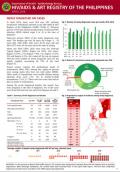What's New
Displaying results 1531 - 1540 of 4899
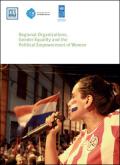
Resource | Publications,
Gender equality and the political empowerment of women are key elements for the consolidation of sustainable democracies worldwide.
Global and regional organizations play an important role in the development of legal and policy frameworks, as well as in the design of effective action plans to better support the advancement of the gender equality agenda at the global, regional and national levels.
This report presents key instruments for promoting gender equality and political empowerment of women that are currently in place at the global and regional levels, highlighting the challenges, opportunities and successes that each organization has encounter in the implementation within their respective regions.
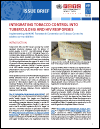
Resource | Fact Sheets,
The Global Fund to Fight AIDS, TB and Malaria has opened up the opportunity to incorporate tobacco control into TB and HIV grants. In line with the 2030 Agenda, the UNDP Strategic Plan 2018-2021, and UNDP’s HIV, Health and Development Strategy 2016-21: Connecting the Dots, UNDP and the Secretariat of the WHO Framework Convention on Tobacco Control (WHO FCTC) have produced this Issue Brief to inform Global Fund applicants on integrating tobacco cessation into Global Fund HIV and TB grants. The Issue Brief outlines how tobacco consumption worsens TB and HIV outcomes and how the integration of tobacco control could increase health benefits and efficiencies. Key approaches and practical options for such integration are outlined, based on a review of research and case studies.
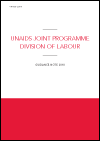
Resource | Guidelines,
The Joint United Nations Programme on HIV/AIDS (UNAIDS) leads and inspires the world to achieve its shared vision of zero new HIV infections, zero discrimination and zero AIDSrelated deaths and to end the AIDS epidemic as a public health threat as a contribution to achieving the Sustainable Development Goals. A champion and forerunner of United Nations reform, UNAIDS unites the efforts of 11 United Nations Cosponsors—UNHCR, UNICEF, WFP, UNDP, UNFPA, UNODC, UN Women, ILO, UNESCO, WHO and the World Bank—and the UNAIDS Secretariat. The achievement of sustainable results for people is at the centre of the Joint Programme’s operations at all levels.
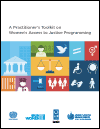
Resource | Tools,
This practitioners Toolkit on Women’s Access to Justice, developed by UNDP, UN Women, UNODC, and OHCHR provides evidence-based guidance for a coherent and consistent policy and programming approach to overcoming these obstacles. This guidance will help to ensure UN system coordinated responses when addressing legal and justice challenges that women face within the context areas of marriage, family, and property rights; ending violence against women; and women in conflict with the law. Designed primarily for staff of the UN system, the toolkit presents a menu of options for scaling-up work and responding to current deficits in women’s access to justice programming and the growing demand for technical assistance in this area. This toolkit consolidates and complements existing resources and aims at enhancing the impact of UN support by stimulating bolder gender-responsive justice interventions for the full realization of the rights of women and girls.
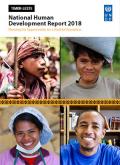
Resource | Publications,
Timor-Leste’s 4th National Human Development Report responds to the development aspirations of the youth of Timor-Leste, the drivers of the nation’s future development. The report examines well-being and identifies options for seizing the demographic dividend, an issue that profoundly influences human potential and sustainable development.
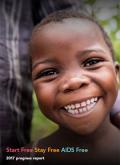
Resource | Publications,
Start Free Stay Free AIDS Free is a collaborative framework to accelerate the end of the AIDS epidemic among children, adolescents and young women by 2020.
This progress report reflects achievements made during the first year of implementation (through December 2016), as countries have taken actions in line with new or existing national strategies. The most recent data on country progress in 2016 are based on country-reported data and country-developed models using Spectrum software that were reported to UNAIDS in 2017.
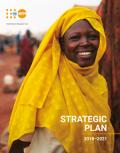
Resource | Guidelines,
This interactive edition of the UNFPA Strategic Plan 2018-2021 shows the overall goal of UNFPA, the three transformative results, alignment with Agenda 2030, the four core areas of engagement, how we work, and budget.
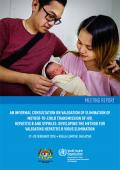
Resource | Publications,
The consultation was convened in Malaysia (Putrajaya, 27 to 28 February 2018) by the Malaysian Ministry of Health and WHO to discuss potential approaches for validation of mother-to-child transmission of hepatitis B inviting national and international experts.
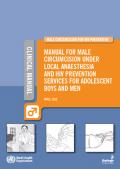
Resource | Tools,
Safety and people-centred health services are top priority as male circumcision is implemented to reduce the risk of HIV among men in high burden countries. WHO and Jhpiego are launching the 2018 Manual for Male Circumcision under local anesthesia and other HIV prevention services for adolescent boys and men to support the ongoing delivery of high quality services. Since the 2007 WHO and UNAIDS recommendation to add male circumcision as an intervention in a package of services to reduce men’s risk of heterosexually acquiring HIV, extensive practical experience has been gained and lessons learned.






